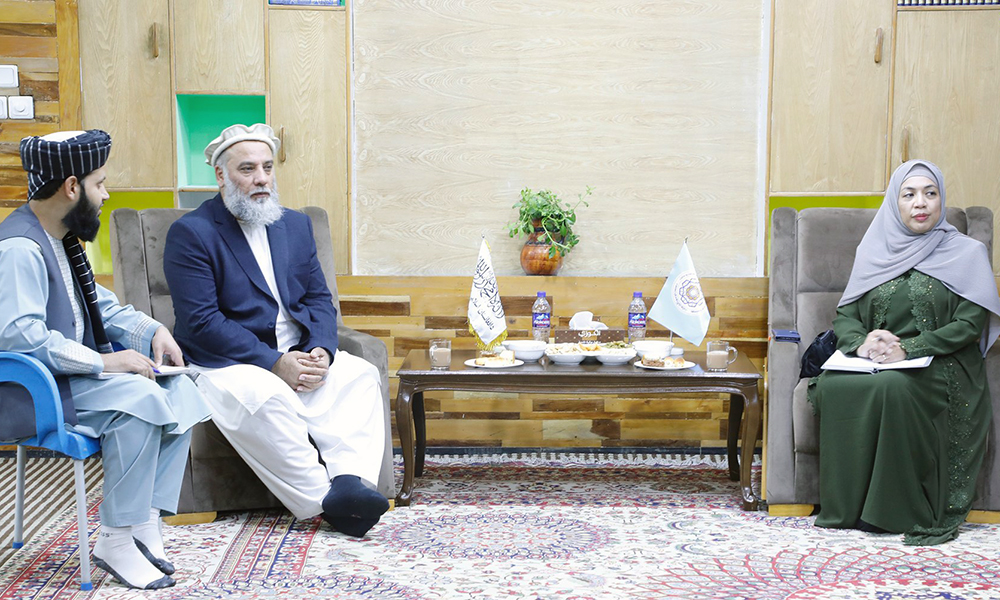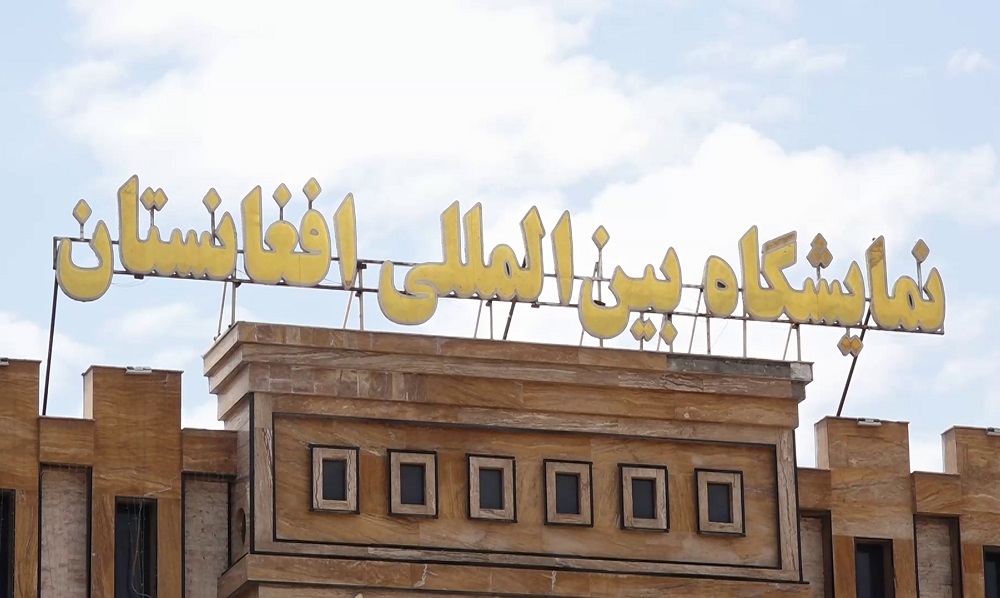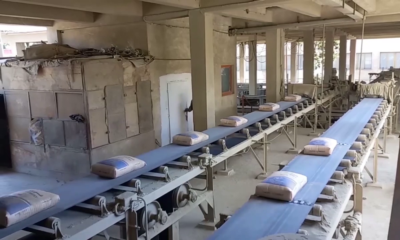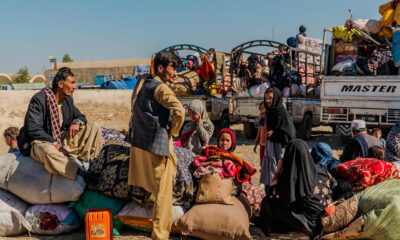Business
HRW urges governments, IEA to reach agreement on banking issues

Afghanistan’s humanitarian crisis cannot be effectively addressed unless the United States and other governments ease restrictions on the country’s banking sector to facilitate legitimate economic activity and humanitarian aid,” Human Rights Watch said in a statement on Thursday.
It said that the US air strike killing the al-Qaeda leader Ayman al-Zawahri should not derail ongoing discussions between the US and Afghanistan to urgently reach an agreement allowing ordinary Afghans to engage in legitimate commercial activity.
“Afghanistan’s intensifying hunger and health crisis is urgent and at its root a banking crisis,” said John Sifton, Asia advocacy director at Human Rights Watch. “Regardless of the Taliban’s (IEA) status or credibility with outside governments, international economic restrictions are still driving the country’s catastrophe and hurting the Afghan people.”
Despite actions by the US and others to license banking transactions with Afghan entities, Afghanistan’s central bank remains unable to access its foreign currency reserves or process or receive most international transactions. As a result, the country continues to suffer from a major liquidity crisis and lack of banknotes, HRW noted.
Businesses, humanitarian groups, and private banks continue to report extensive restrictions on their operational capacities. At the same time, because outside donors have severely cut funding to support Afghanistan health, education, and other essential sectors, millions of Afghans have lost their incomes, according to HRW.
Overall, more than 90 percent of Afghans have been suffering from some form of food insecurity since last August, skipping meals or whole days of eating and engaging in extreme coping mechanisms to pay for food, including sending children to work, HRW said.
“Importers are struggling to pay for goods, humanitarian groups are facing problems with basic operations, and the Afghan diaspora can’t send enough money to their relatives and friends,” Sifton said. “Millions of hungry Afghans are experiencing the abysmal reality of seeing food at the market but being unable to purchase it.”
Business
Azizi calls on Malaysian investors to invest in Afghanistan

Nooruddin Azizi, Acting Minister of Commerce and Industry, met with representatives from the ministries of foreign affairs, defense and interior of Malaysia, along with other senior officials, on Wednesday and called on Malaysians to invest in Afghanistan.
The visiting delegation is being led by senior diplomat Dr. Shazelina Zainul Abidin.
According to the IEA’s foreign ministry, the two sides discussed bilateral trade, holding a business communication conference to strengthen trade relations between the two countries, the trade balance between Afghanistan and Malaysia, and creating a market for Afghan products, including carpets, cotton, and minerals.
According to the ministry, at the end of the meeting, the Acting Minister emphasized the increase of investment from regional countries in Afghanistan and called on Malaysian investors to also invest in Afghanistan.
Business
Afghanistan starts exporting via railway to Turkey

The Ministry of Interior says that Afghanistan has started exporting goods to Turkey via the Herat-Khaf railway line.
In a post on X, the ministry said: “Afghanistan’s exports to Turkey started in a calm atmosphere through the Herat-Khaf railway line.”
The ministry added that one train will run daily for a month and then two trains will run daily.
According to the ministry, the security of Khaf-Herat railway line is provided by the guards of the National Public Protection Agency.
Khaf-Herat railway project not only connects Iran and Afghanistan by rail, but also completes a 2,000-kilometer route along the east-west rail corridor from China, through Uzbekistan, to Afghanistan, to Iran, and on to Turkey and Europe.
As a landlocked country, this railway network will provide a safe route to connect with Europe via Iran’s railway network and Iran’s southern ports.
This railway line is strategic for trade between Iran and Afghanistan and will allow six million tons of goods to be sent between the two countries.
Business
Afghanistan, Kazakhstan to hold joint expo in Kabul

A joint expo between Afghanistan and Kazakhstan will be held in Kabul in the next four days, officials said on Sunday.
Officials of the Ministry of Industry and Commerce said that the two-day expo will be held for the purpose of expanding and strengthening trade relations between the two countries.
“This expo will be held as a follow-up of the Kazakh-Afghan international expo, which was held in the city of Astana, Kazakhstan, with the participation of a large delegation of the government and the private sector of the Islamic Emirate of Afghanistan,” Abdulsalam Javad Akhundzadeh, the spokesman of the Ministry of Industry and Commerce, said.
“At this expo, domestic products from different sectors of Afghanistan and the Republic of Kazakhstan will be put on display for two days.”
According to officials, 40 large Kazakh companies, and 40 large Afghan companies will exhibit their products.
Mohammad Saber Latifi, head of the Afghanistan International Expo Center, said that fruits, minerals and commercial services will be displayed at the expo.
During the expo, various memorandums of understanding for the trade of goods are also expected to be signed by companies.
-

 World5 days ago
World5 days agoNorth Korea officials visit Iran in a rare public trip
-

 Sport4 days ago
Sport4 days ago‘Serious talent’ Fraser-McGurk bonds with Warner to light up IPL
-

 Latest News4 days ago
Latest News4 days agoOver 1,000 Afghan refugees forced out of Pakistan in one day
-

 Sport2 days ago
Sport2 days agoAfghanistan beat Iraq 5-3, inch closer to Futsal World Cup berth
-

 Regional2 days ago
Regional2 days agoNew UK sanctions target Iranian drone industry
-

 Regional3 days ago
Regional3 days agoTurkey accuses U.S. of double standards over Gaza in rights report
-

 Latest News2 days ago
Latest News2 days agoEU allocates 17 million euros to support Afghans on the move
-

 Latest News2 days ago
Latest News2 days agoPakistan extends registered Afghan refugees’ stay till June 30
























